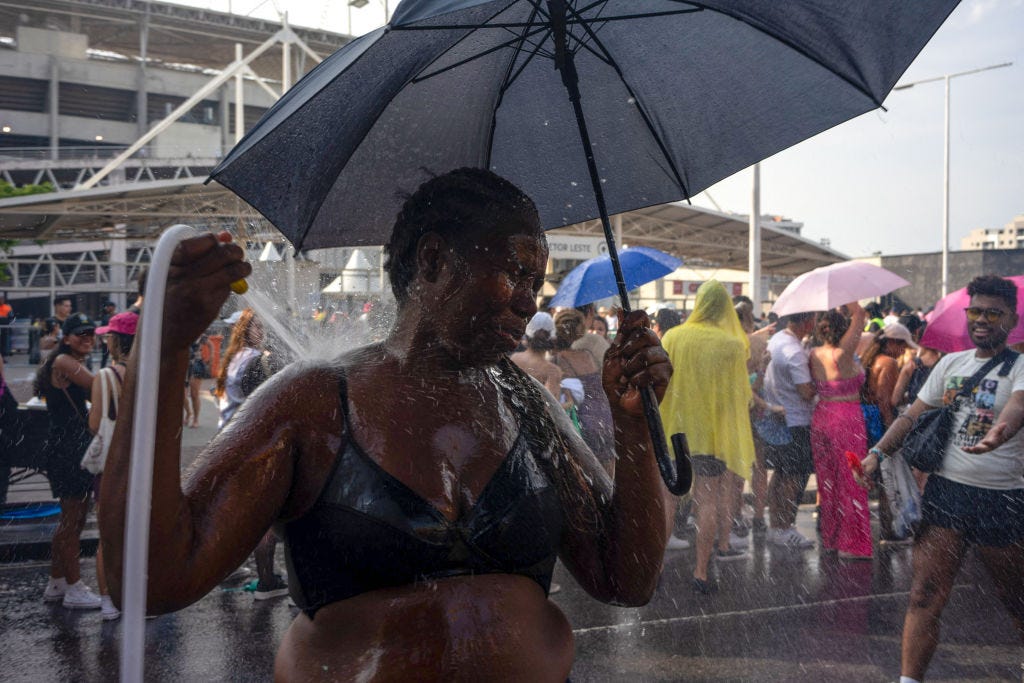What does Taylor Swift owe the planet?
A concertgoer's death amid extreme heat fueled by the climate crisis is sparking new questions about the superstar's responsibility to protect her fans.

It’s been widely reported that the day 23-year-old Ana Clara Benevides collapsed an…



